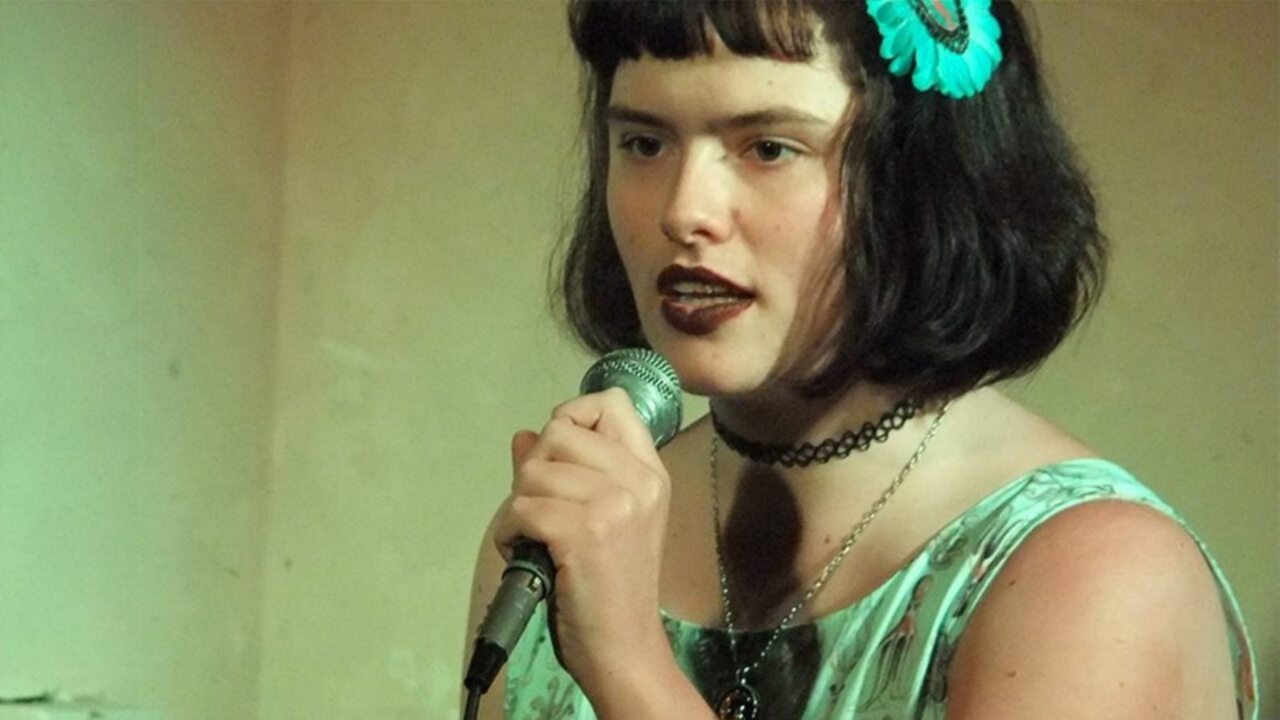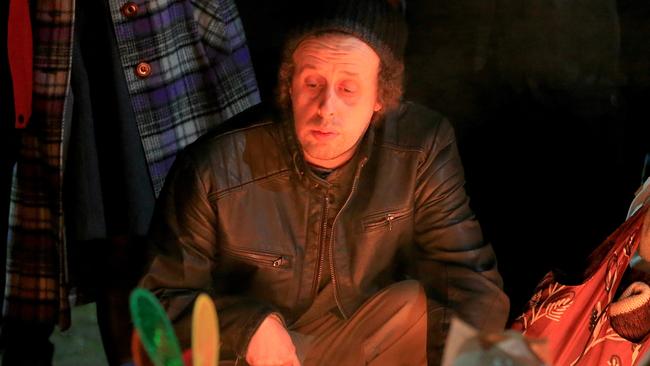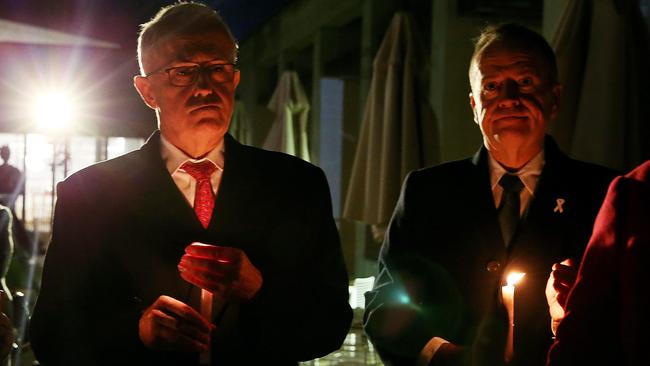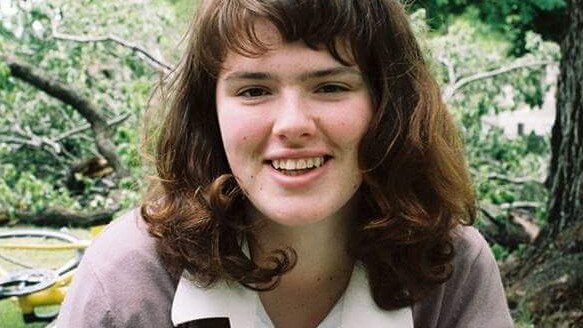The silence of thousands spells respect in Eurydice Dixon’s playground
For Eurydice Dixon and her school mates, Princes Park was more than a local playing field or a shortcut to the tram stop.

For Eurydice Dixon and her schoolmates, Princes Park was more than a local playing field or a shortcut to the tram stop. It was central to their teenage lives; a big, open backyard where they could walk and laugh and talk and live.
Beneath darkening skies in Melbourne, as a growing debate about violence towards women and community safety swirled around the nation, Eurydice’s class of 2013 returned to a place now scarred by her rape and murder.
They sat together, wearing their Princes Hill Secondary College year 12 tops, hugging one another in silence and laying flowers in the growing circle of bouquets that marks the spot where their classmate’s lifeless body was found nearly a week ago.
Elsewhere, Malcolm Turnbull led a chorus of influential voices calling for more to be done to make Australia safe for women and to guard against the precursors of misogyny that can fuel the urge to possess, rape and kill. “Women must be safe everywhere,’’ the Prime Minister said. “On the street, walking through a park, in their homes, at work. We need to ensure that we have a culture of respect of women.

“Not all disrespect of women ends up in violence against women but that’s where all violence against women begins.
“We must never, ever, ever tolerate violence against women. Eurydice Dixon — we grieve her loss, we mourn with her family and we say never again.’’
It is a debate without partisan lines or dissenting voices. Greens MP Adam Bandt, whose electorate takes in the route Eurydice walked and travelled towards home on the night she was killed, said her death had hit Melbourne hard.
Opposition Leader Bill Shorten told parliament Eurydice’s murder was shocking, futile and beyond belief.
“Women in Australia have the right to freedom of movement. It is not the fault of women if they chose to walk home from transport to their house,” he said. “All of this violence is ultimately preventable and we need to tackle the enablers of violence, we need to change the attitudes of men.’’
On the wet grass of Princes Park, they held a candlelight vigil for Eurydice Dixon, an emerging comic who lived with her father and brother in a commission flat a few streets from where she was killed on her way home after a late-night gig.
Organisers were expecting 10,000. It is impossible to know how many came but by the end of the night, the crowd had swelled across three soccer pitches and the memorial had spread to Sydney, Brisbane, Canberra, Adelaide, Perth and the Victorian country towns of Ballarat, Bendigo, Castlemaine, Geelong, Kilmore, Violet Town and Warrnambool. Among the mourners at Princes Park were Victorian Premier Daniel Andrews and his wife Catherine, who was visibly upset as she placed a wreath of flowers among the candles and cards.
Eurydice’s class of 2013 huddled against the cold on a green tarp in the middle of the crowd. When the floodlights were switched off, plunging the park into darkness, you could just make out their faces in the flickering candlelight.

Alex McNamara, one of Eurydice’s classmates, said he couldn’t believe she had been killed in a place they had all assumed was safe.
“This park was more than just a park to us,’’ he told The Australian. “You walk through this park and remember all the great times you had here. Now, when I was walking through with a couple of mates, it is haunted.
“Eurydice was quiet, she kept to herself, but … she was easy to talk to. We really needed to do something for Eurydice. We’ve lost someone that was part of us.’’
There were no speeches, no political statements at Princes Park. They held hands and grasped flowers. A union official in high-viz handed out tissues. For an eerie 20 minutes, the crowd stood in complete silence. The final word went to the late Leonard Cohen, whose Hallelujah was sung by the Brunswick Rogues Choir.
In Sydney, mourners gathered in Hyde Park and lay flowers next to a board carrying the names of women violently killed.
In the courtyard of Canberra’s Parliament House, ministers, opposition frontbenchers and MPs of all political leanings gathered in the freezing night air. Indigenous MP Linda Burney said some Aboriginal women saw the violence against them as normal.
Within a day of Eurydice’s death, police had in custody the man they allege is responsible. Jaymes Todd, 19 and autistic, is charged with her rape and death.

The practical policy response is familiar and limited: calls for more CCTV and a security review of the lighting around Princes Park.
Victoria’s Minister for Women, Natalie Hutchins, wrote a column for the Women’s Agenda website in which she railed against a “culture of sexism’’ that still shapes attitudes towards violence against women.
“We are angry as we, again, march in the streets for justice, wondering if perpetrators are actually listening to us or not,’’ she wrote. “We are sick of being told to stay in well-lit places with lots of people to avoid being sexually assaulted. Or raped. Or murdered.’’
On the cold grass of Princes Park, a card left among the flowers, put it simply: “This shouldn’t have happened to you. I’m so sorry. It could have been me walking to anywhere late at night.’’




